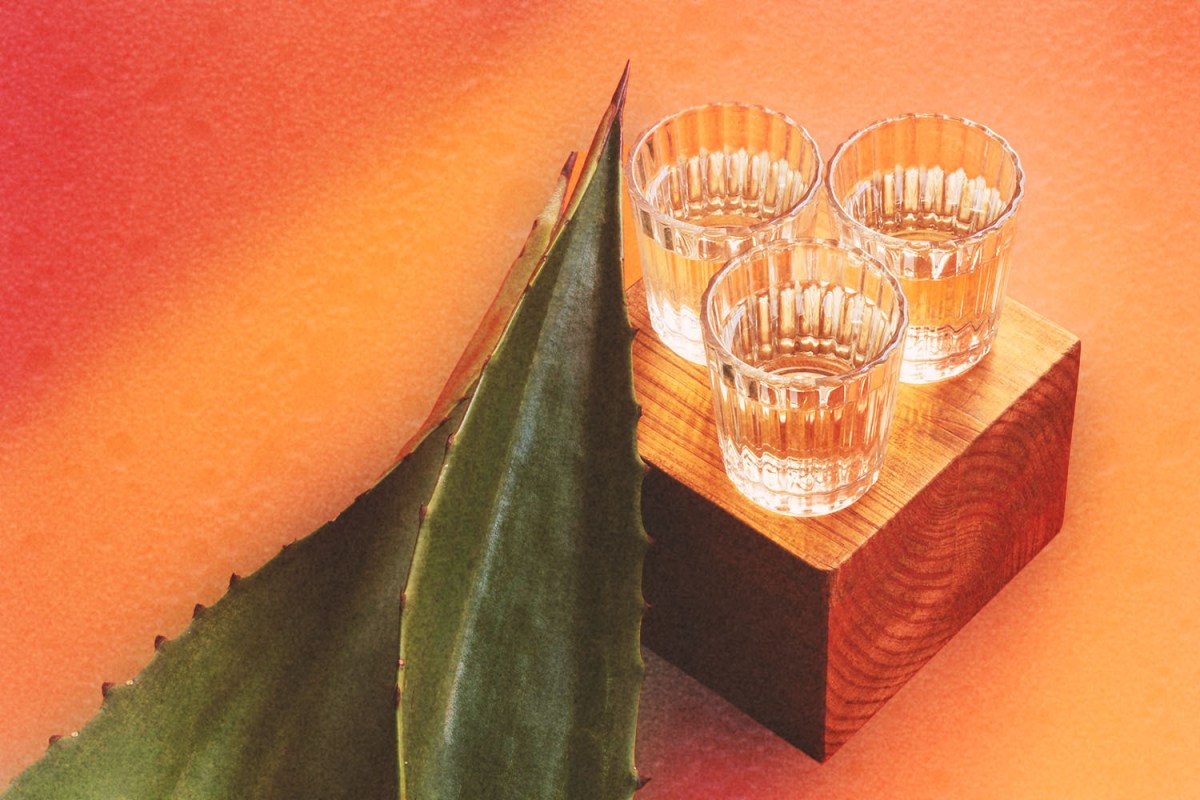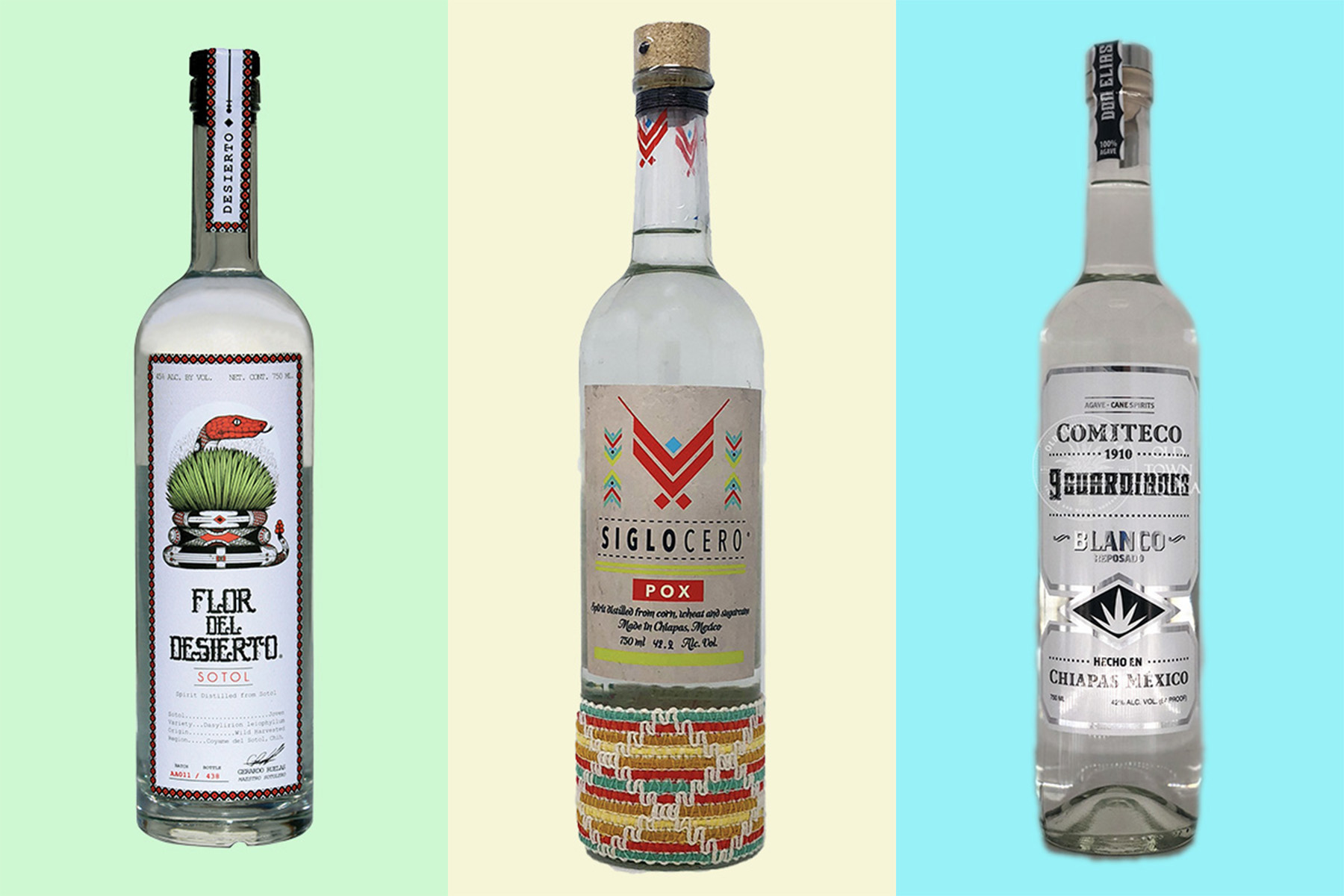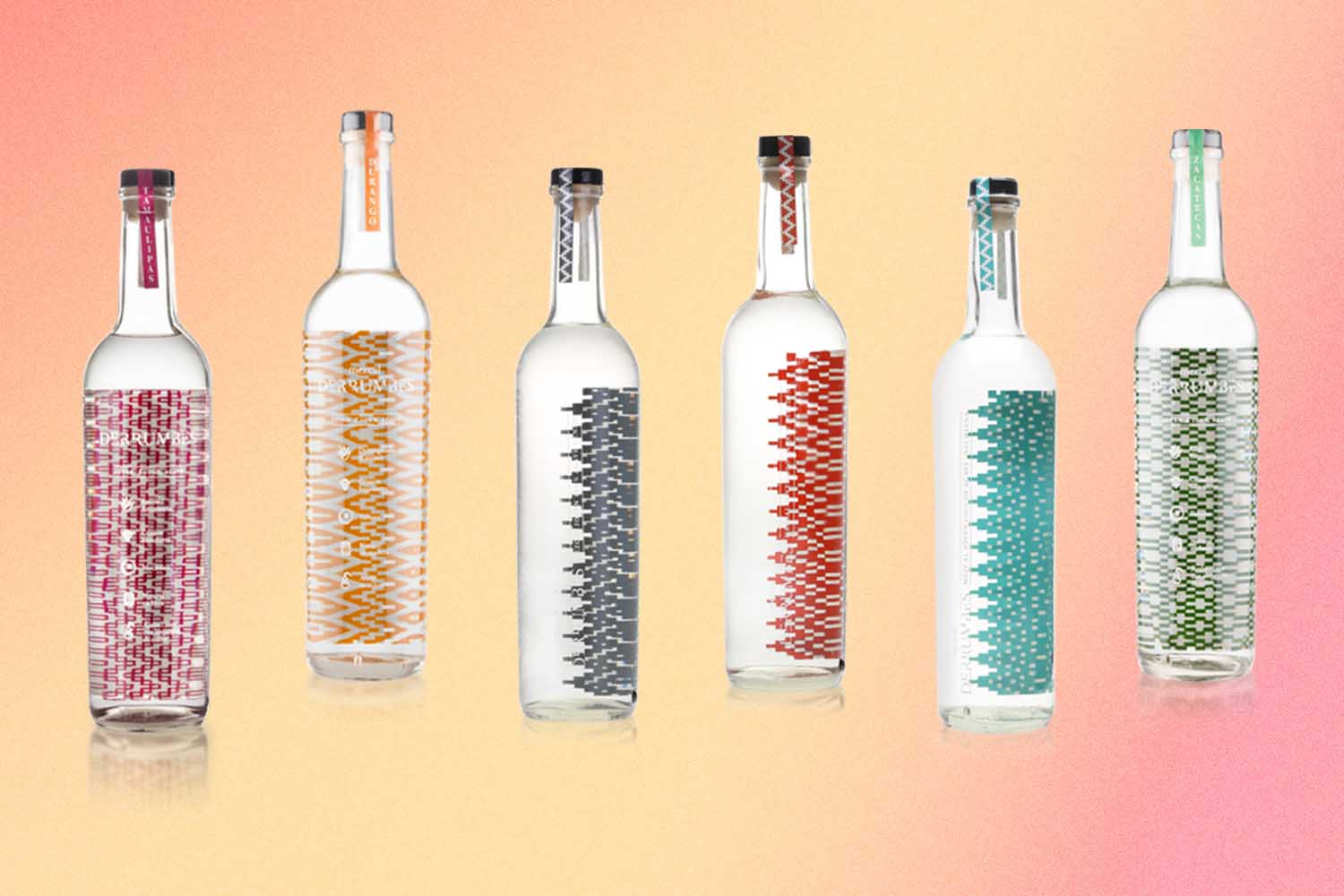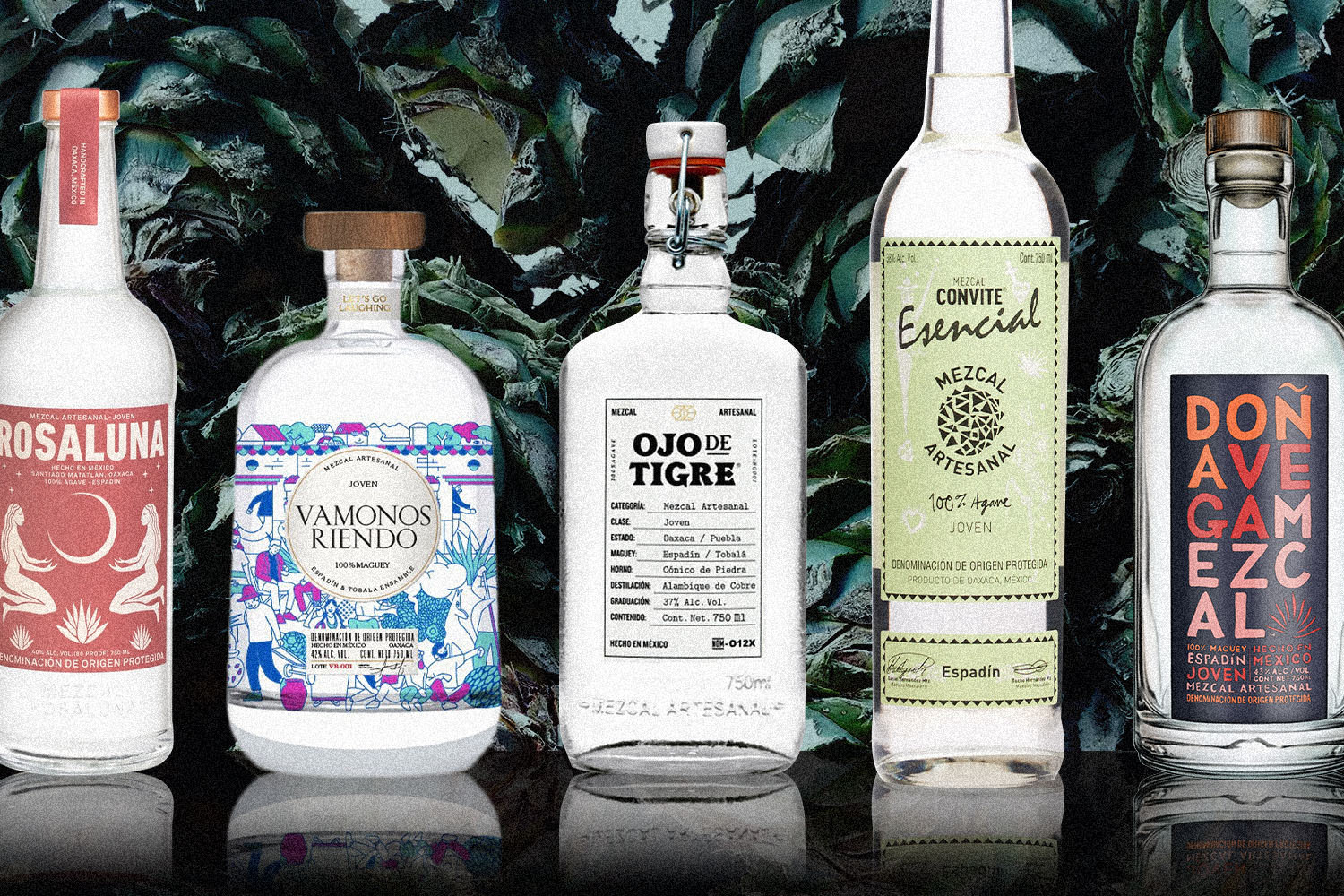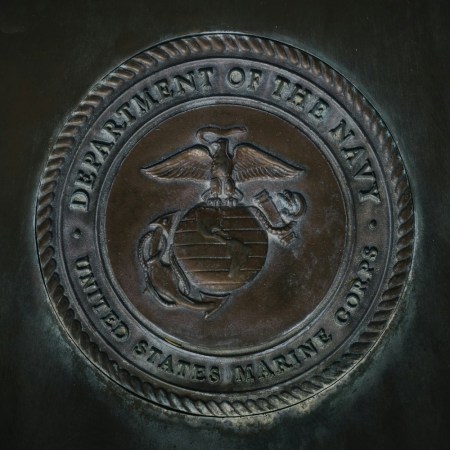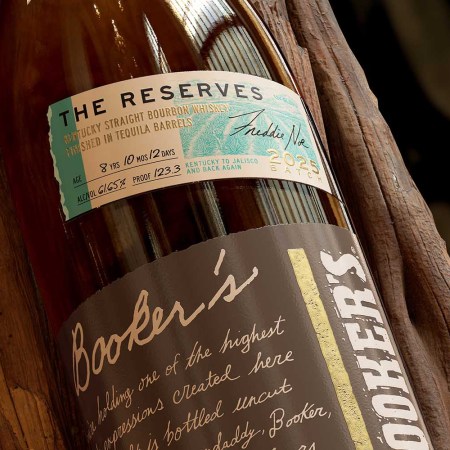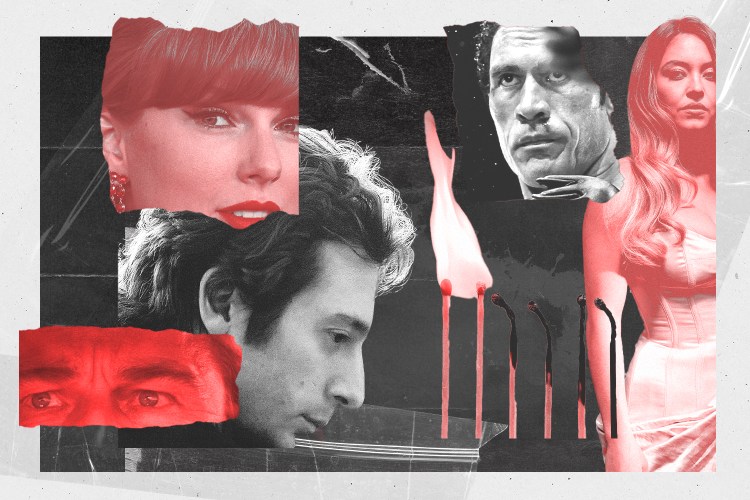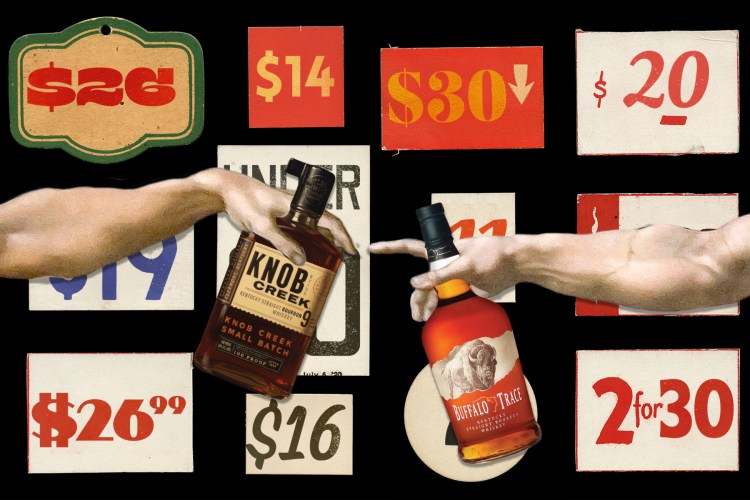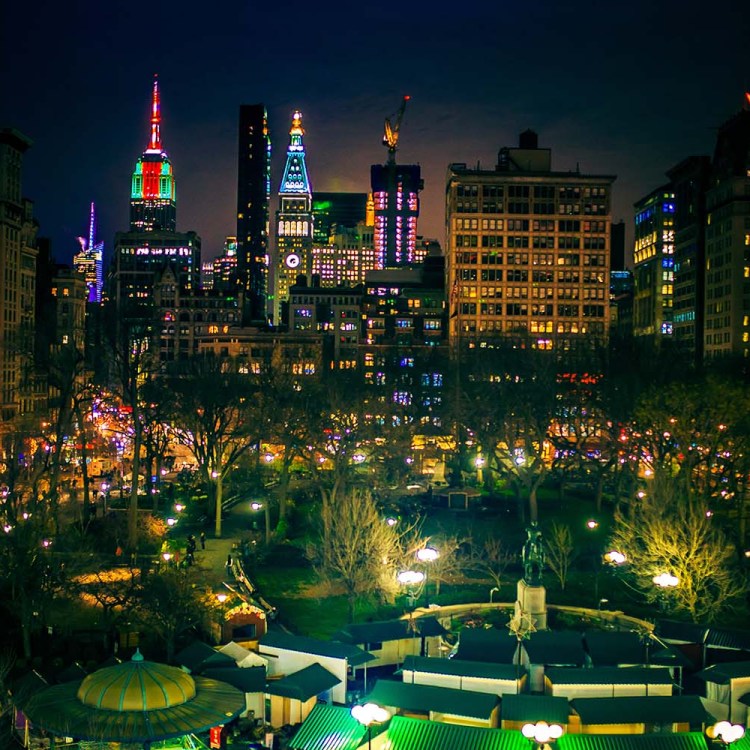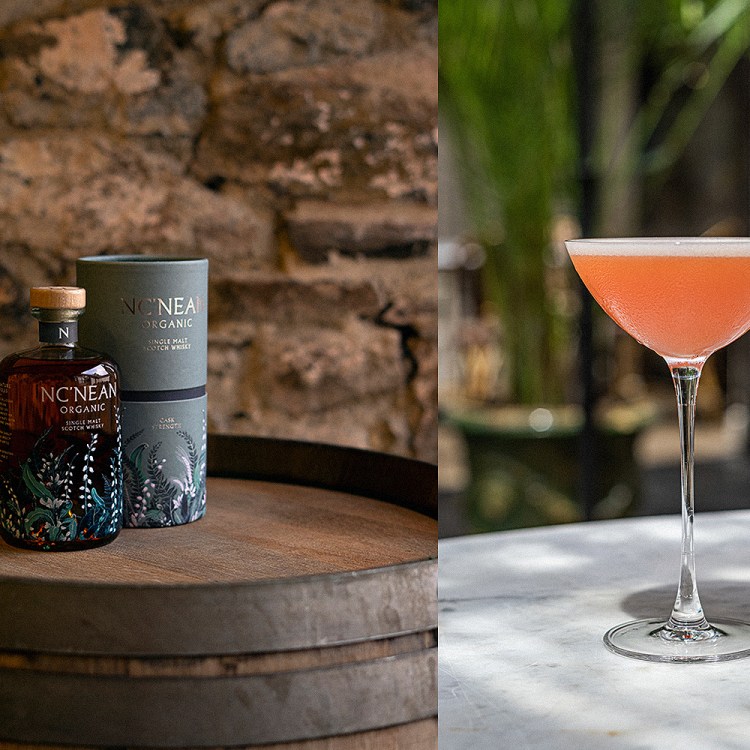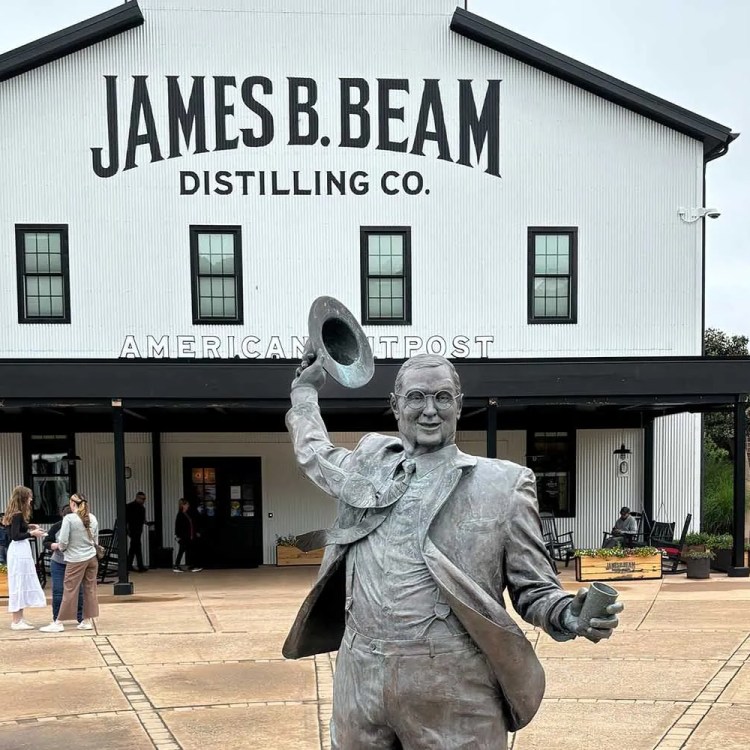In the drinks world, mezcal seems like the hot new category.
Drizly, the alcohol delivery platform, saw Mezcal sales explode 600% year-to-year in 2020. What’s more, sales overall in the U.S. are expected to continue to climb 18% in 2022.
And yet, if you look closely at those statistics, you’ll notice all those numbers are relative. Mezcal also makes up just one percent of Drizly’s total sales; tequila also has a production level about 65 times higher than its agave cousin.
There are a lot of reasons Americans have been tentative with embracing mezcal: the lack of a defining cocktail, brand name recognition and most importantly, even a general understanding of the category that goes beyond “smoky tequila.”
“Every day we get congratulated on making tequila. It’s not tequila!” Aaron Paul, the Breaking Bad actor and co-founder of the recently-launched Dos Hombres mezcal, told us during a tasting last month. “We even coined the phrase ‘It’s mezcal’…We want to educate people about this category.”
Unlike the celebrity oversaturation in the tequila world, Paul and his friend/business partner Bryan Cranston represent the rare big-name ownership in the mezcal marketplace. (Jorge Masvidal, the UFC fighter, is associated with Recuerdo Mezcal.) But celebrity ownership brings additional scrutiny: Would having famous people not of Mexican descent becoming the face of mezcal add to the issues of cultural appropriation that linger in the booze world, for example? And would the inevitable quest to make mezcals more approachable and mainstream kill what makes the spirit so unique?
There are a lot of questions and some concerns here, along with the excitement that comes with having a big, bold spirits category that’s largely stayed underground. To understand the present and future of mezcal, we spoke with brand owners, drinks ambassadors, aficionados and mezcaleros about where mezcal is now and where, for better or worse, the category is headed.
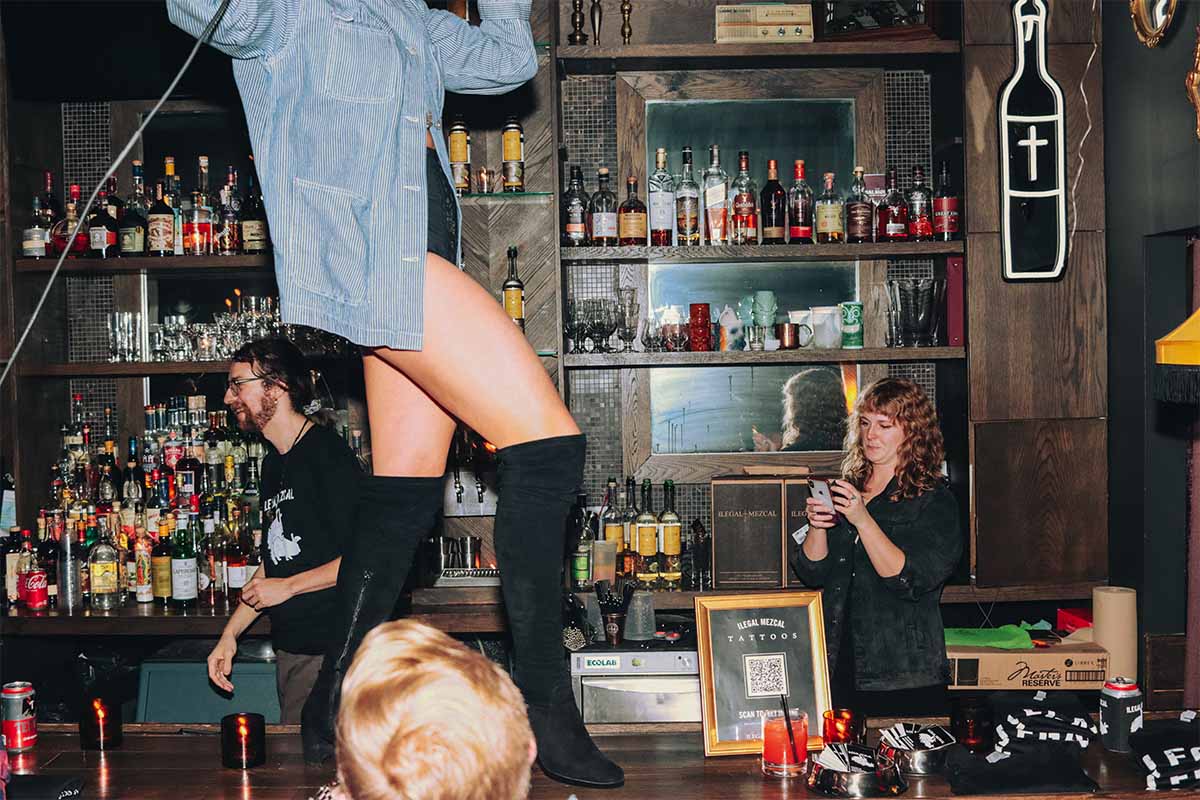
The ambassador
Ilegal Mezcal isn’t actually “illegal” — started in 2006, Ilegal (yes, with one “l” after the i) has made a mark through cheeky advertising and, more recently, a series of concerts and bar experiences across the country called Bar Ilegal, which recreates Guatemala’s Café No Sé (where the idea for Ilegal was hatched and also supposedly the first mezcal bar outside of Mexico).
At these experiences, customers are treated to guest bartenders, live music and a lot of mezcal, but nothing as dry or studied as tasting classes. During my Bar Ilegal visit to the Catskills in early March, we dined on food and drinks from New York’s Mister Paradise and heard a few sets by the band SUSU; the emphasis really seemed to be on having a good night out.
“The idea with Bar Ilegal is to bring a lifestyle to mezcal fans in the U.S.,” says Gilbert Marquez, Ilegal’s Global Brand Ambassador and a first-generation Mexican-American (and former bartender, punk rock musician and current part-time hatmaker). “We pop up at local venues in 13 U.S. cities and bring a taste of Ilegal through inventive cocktails, live music, on-site tattoo artists and more — it’s a way to experience the birthplace of Ilegal and create a memorable time for consumers with varying levels of mezcal knowledge.”
Which might be the smartest way to introduce a mezcal to the masses — associate it with good times. There’s a reason Ilegal touts itself as the “no. 1 most recognized mezcal,” as it’s probably one of only a handful of brands that casual drinkers could name.
Less visibly, Marquez and Ilegal also host several trade events for bartenders and other drinks professionals — having respected mixologists tout mezcal and use it creatively is certainly a tried and true way to bring recognition to a category.
Still, even with solid growth, the Ilegal team doesn’t have grand visions of mezcal becoming a dominating force in the drinks world — their production methods won’t allow it.
“We don’t make our mezcal with large-scale mechanics that would create the same volume as other spirits categories,” Marquez says. “For Ilegal, that means that we scale horizontally instead of vertically. It’s always possible to add more small tahonas, artisanal ovens, mills and fermentation vats and hire more employees. I think this is a good opportunity to prove that a mezcal brand can grow without becoming industrialized. We have a great opportunity after learning some valuable lessons from decisions that may have been missteps of some tequila makers in sustainability and the way of growing.”
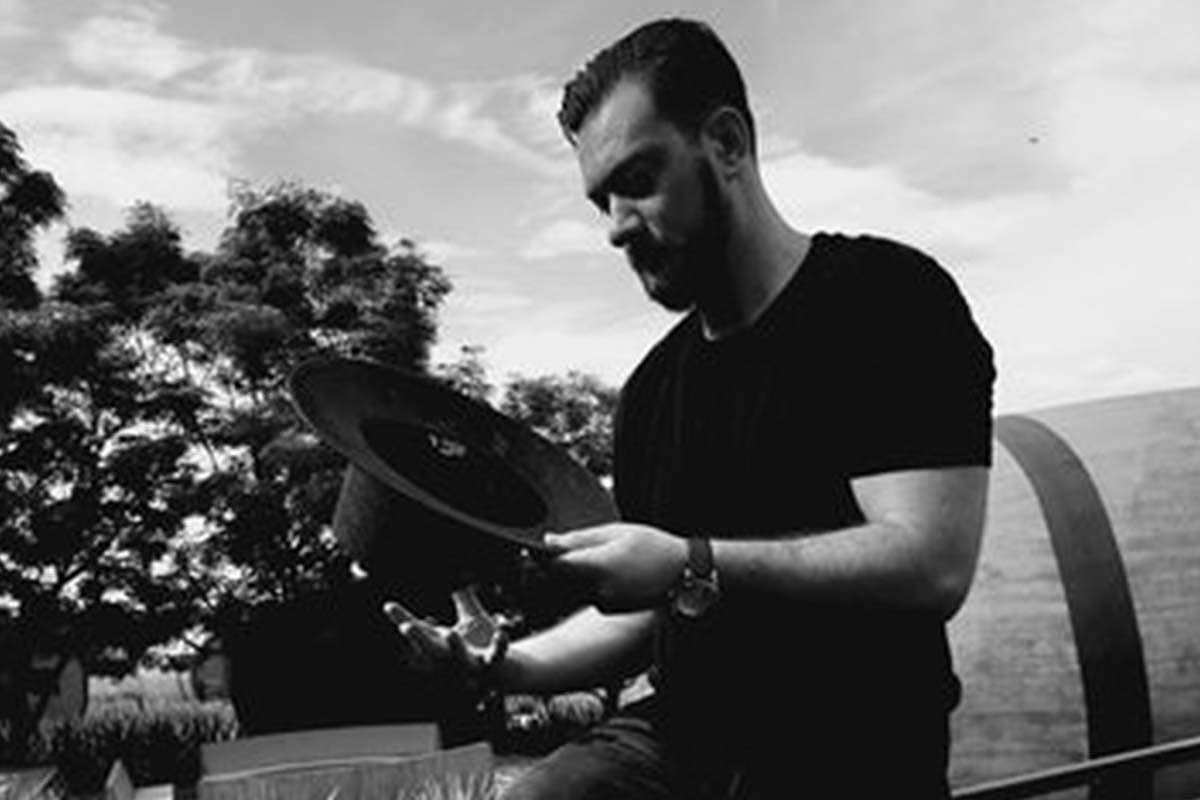
The artisan
Mezcal for Life is a brand that sells handmade, ethically sourced drinkware sourced from producers in agave-growing communities in Mexico. Started by Greg Rutkowski — who’s from Chicago but of Mexican descent and currently living in Mexico — Mezcal for Life aims to “help communities economically [while] also spreading awareness about mezcal,” as Rutkowski tells us.
To that end, Rutkowski will work with mezcal producers on a number of levels, from making promotional items to conducting educational mezcal tours. And, perhaps surprisingly for some protective mezcal aficionados, some of these craft distillers are looking to find a way to grow outside of their home country. “The producers sometimes consult with us in helping them make their brand more appealing to the American market,” he says.
Another surprise: Rutkowski sees some upside in the possibility of more celebrity ownership. “For the market and the industry in general, I think it would be great,” he says. “A rising tide lifts all boats. Celebrity brands take a lot of criticism, but the question isn’t if they should exist — the real question is how their influence, money and network can be leveraged to have a positive impact.”
Rutkowski, who is also currently selling his drinkware on Bespoke Post, has the same goal as everyone else: To preach the gospel of mezcal.
“The best thing about mezcal is the enjoyment I get sharing it with everyone I possibly can,” he says. “Even here in Mexico, I’m introducing the spirit to Mexicans who have never tried it before. I want mezcal to grow locally within Mexico just as much as I want it to grow around the world. And now, mezcal has the benefit of coming to the world stage in a place where education, information and transparency can run freely.”
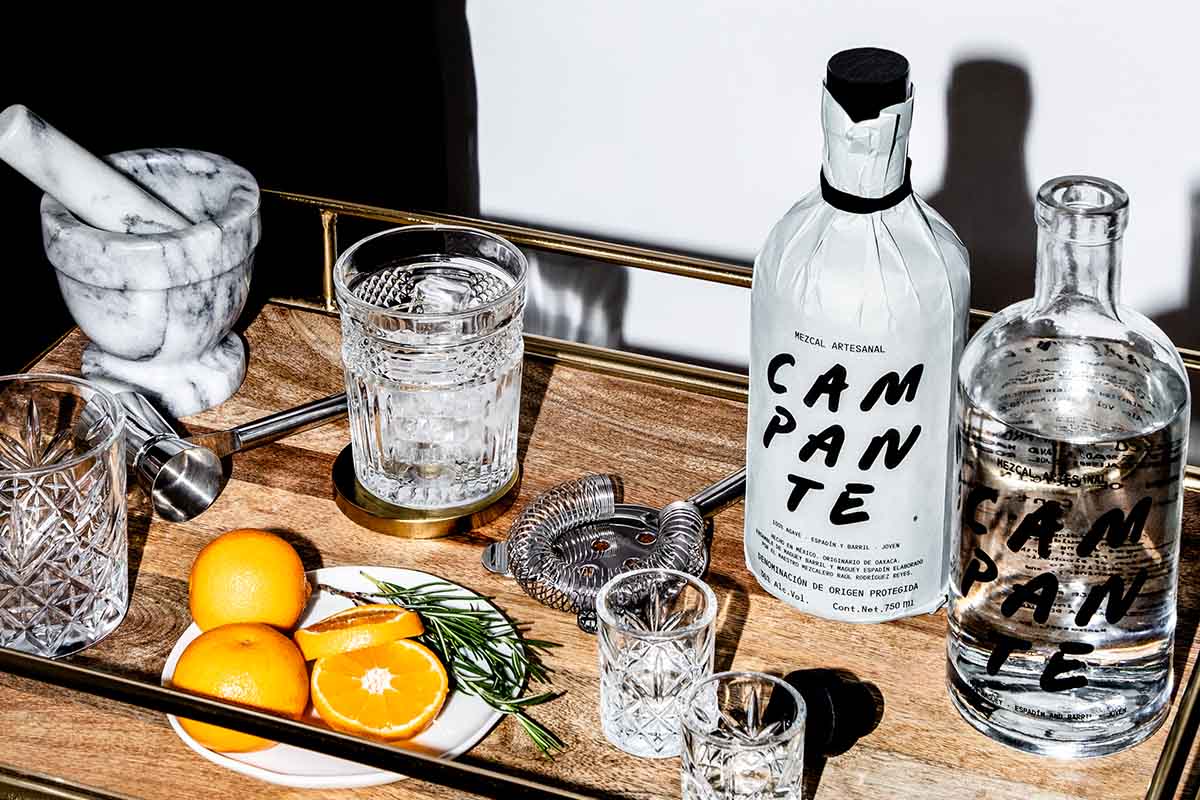
The brand owner from the U.S.
Mezcal’s biggest strengths are also its biggest hurdles.
“There is a higher learning curve for drinkers with mezcal,” admits Shirley Leigh Wood Oakes, partner and CEO of Mezcal Campante. “That’s due to its complexity, from the different varieties of agave to the varied processes and types or ages. But I also think that’s what makes mezcal so incredibly interesting — the many nuances and layers. There is so much to learn and share with the consumer that it’s easy to get caught up in where to start.”
One starting spot might be a signature cocktail, which mezcal — outside of a “smoky margarita” — seems to lack. “I feel mezcal has incredible power by not being aligned to one signature cocktail,” Oakes says. “Try a mezcal Negroni or Old Fashioned or a Paloma with mezcal. My favorite cocktail to use mezcal in is the Last Word — it really tests the spirit giving it extraordinary balance.”
Oakes is a rarity in the spirits world — agave or not — as a woman who owns a brand. Her position is cause for celebration, but she is also careful to tout her heritage and connection to mezcal’s home of Mexico. “As a category, we have a long way to go to highlight the many faces behind mezcal,” she admits. “Our founding partner of Campante, Jose Luis Bustamante, was born and raised in Oaxaca. His family has been there for at least four generations and counting. Their roots run deep and they are very invested in the community. My background and connection to Mexico are that my grandmother lived there for many years and my mother was born there, giving me the blessing of many family and friends in Mexico.”
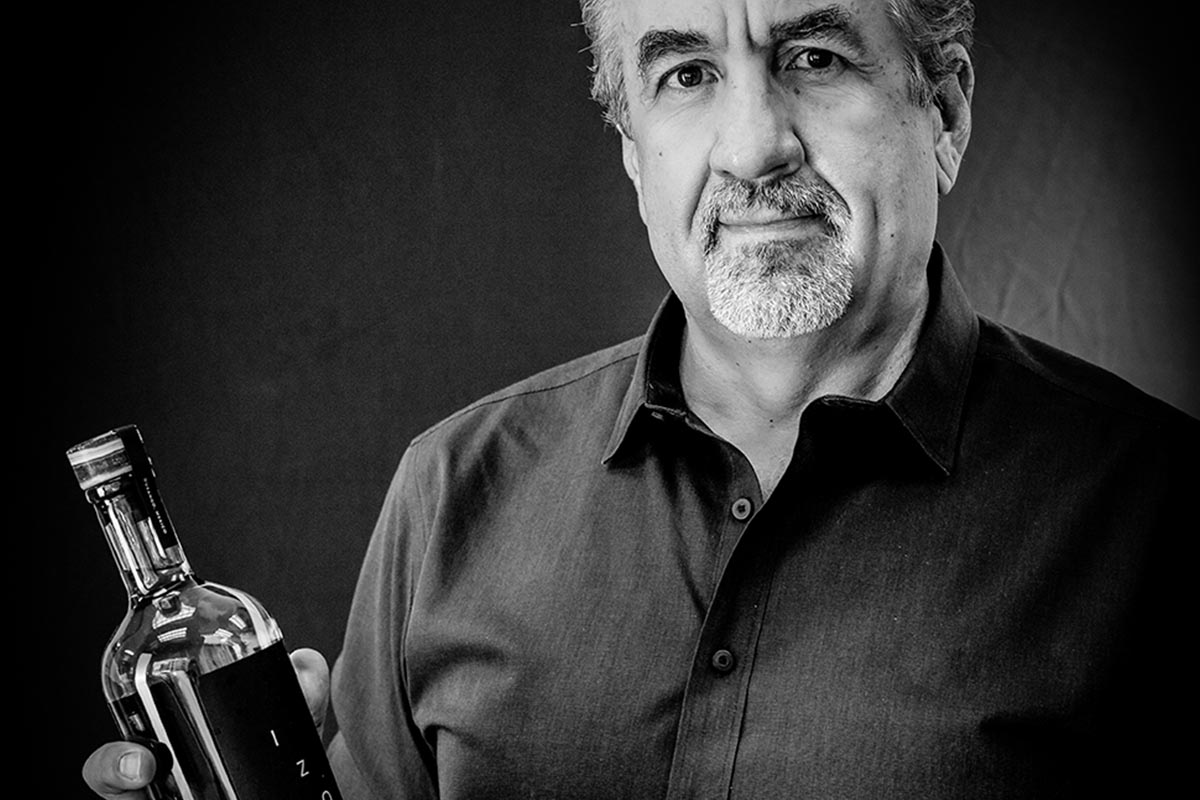
The brand owner from Mexico
Gaston Martinez is the co-founder of IZO Spirits and a native of Durango, Mexico. He started IZO back in 2017 with his friend Linda Belzberg and her son Torrey (the brand is based in San Diego).
A lot of the passion — and anger — about mezcal’s growth revolves around the potential for appropriation or exploitation, particularly as the spirit gains traction in the U.S. While trying to run a successful and mainstream spirits brand (and one that includes tequilas and sotols), Martinez understands that mezcal will only succeed if it honors its heritage.
“I agree on keeping traditions alive and not modernizing them to meet the general public,” he says. “We need to keep the product original and not infuse it with any other additives or change the process. It’s taken a long time to perfect, and there’s a true culture behind mezcal. We want to savor that.”
Martinez is one of the few people of Mexican descent who I’ve spoken to over the years when discussing mezcal, which he recognizes as a potential issue. “It’s best for the heritage to represent the culture, and dealing with the farms and factories in Mexico needs to be a cohesive and understood conversation,” he says. “But bringing mezcal to the U.S market, it’s honorable to be able to communicate the whole process from start to finish. It takes experts to bring a successful brand to market, and feel like you need to do your research and make sure you know who is behind the brand so it can be shared in a positive manner.”
The aficionado
Lou Bank is the founder of SACRED, a not-for-profit that helps improve the quality of life in the rural Mexican communities where heritage agave spirits are made. He’s also the co-host of Agave Road Trip, a podcast that helps bartenders better understand agave, agave spirits and rural Mexico.
He’s passionate and vocal about all things mezcal. And he’s not necessarily optimistic when it comes to the category’s growth.
“Mezcal can be made using so many different agaves, grown in so many different regions, and processed in so many different ways, that the breadth of flavors and aromas is never-ending,” he says. “That’s exciting to someone like me who does a deep-dive on this stuff. But that can be daunting to someone who just wants to drink casually — which would be the vast majority of drinkers.”
In a way, this breadth of flavors and the production methods means it may be hard for mezcal to truly capture a mainstream audience. “So much mezcal is still made using pre-industrial methods means you lack the kind of commonality that characterizes spirits made using industrial processes,” he says. “So much of this is made with tools made one at a time, by hand, and then those tools are used by people, not machines. So … no interchangeable parts, no automation. Which means that two communities just ten miles apart may be doing things in a different way.”
That said, any increased popularity may dampen the very thing that makes mezcal so special. “I think the more popular mezcal becomes, the more industrialized it has to become,” Banks admits. “And I think losing the multicultural wisdom that informs so many of the heritage agave spirits that I love would be a bad thing — yes, because we would lose those flavors, but so much more than that, we risk losing the multicultural wisdom that also informs how so many of these communities have solved problems like water insecurity and food insecurity.”
Would mezcal becoming as popular as tequila be a good thing? “Depends on your point of view. But I do think it would obliterate the Oaxacan landscape,” says Banks. “Last time I checked, something like 92.7% of all mezcal was made in Oaxaca. And something like 90% of that was made from farmed espadin. That’s a lot of environmental pressure on one state — a state, not incidentally, that is the second poorest in all of Mexico. I would suggest that the consumer try a broader range of mezcals — from different states or made from different agaves — both to explore the broader range of flavors and aromas that make mezcal so appealing but also to slow the conversion of Oaxaca’s wildlands into monoculture espadin farms.”
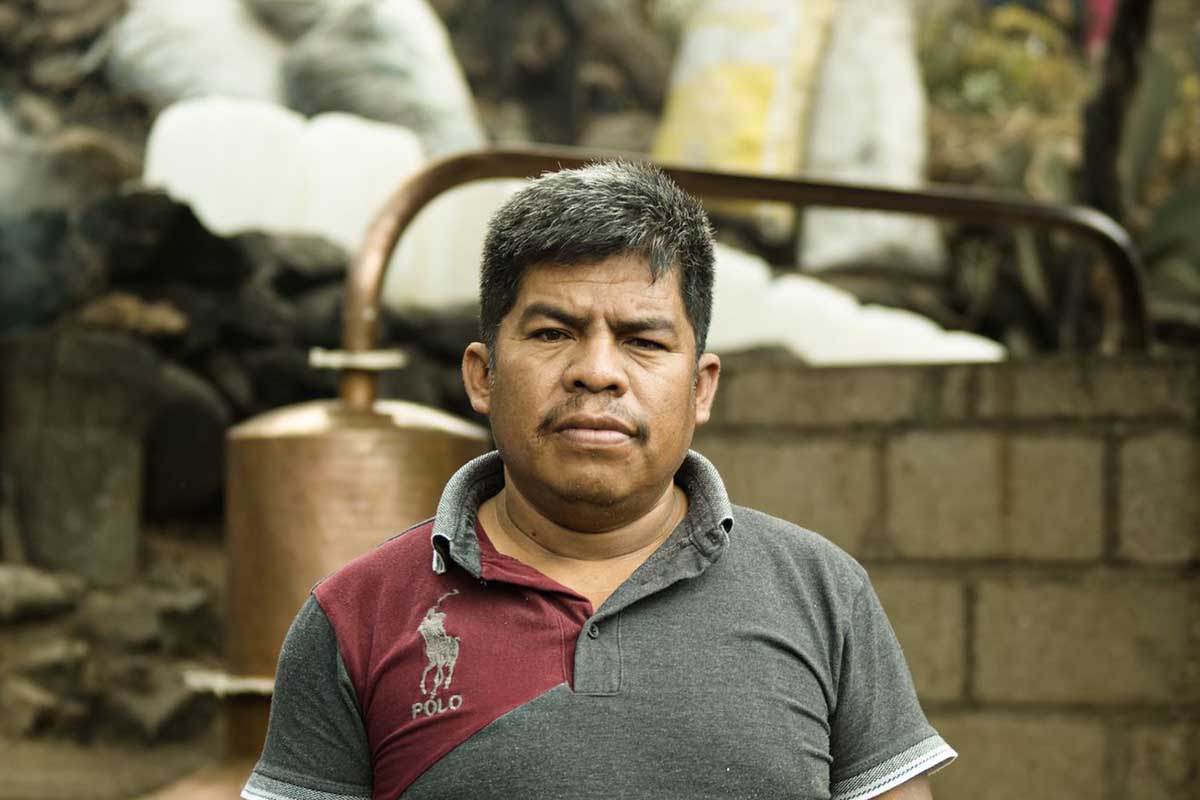
The mezcalero
Ildefonso Macedas is a mezcalero in Atolotitlan, Puebla, Mexico, who’s been producing mezcal since 2005. He and his team produce an average of 300-380 liters per month. While most producers concentrate on espadin, Macedas works with Pichometl, along with Papalometl, Candelillo, Papalote, and Jabalí agaves.
Even in Mexico, mezcal’s had a slow start. “Previously mezcal was considered the most vulgar and unhealthy drink,” as Macedas tells us (via email and through a translator). Now? He would love to see more people enjoy his mezcal, which isn’t certified, so it can’t be exported as mezcal.
“It’s the financial support of my family and source of employment for other people in the community,” he says, adding that he doesn’t believe companies outside of Mexico are taking advantage of producers like him. “Personally, I don’t think so, because it depends on the value that each producer who makes their mezcal gives it.”
In the end, it may come down to the quality of the product at hand, which should be the case for any spirit. “I don’t see negative consequences [to becoming more popular],” he says. “Because we are making an artisanal mezcal.”
Every Thursday, our resident experts see to it that you’re up to date on the latest from the world of drinks. Trend reports, bottle reviews, cocktail recipes and more. Sign up for THE SPILL now.
